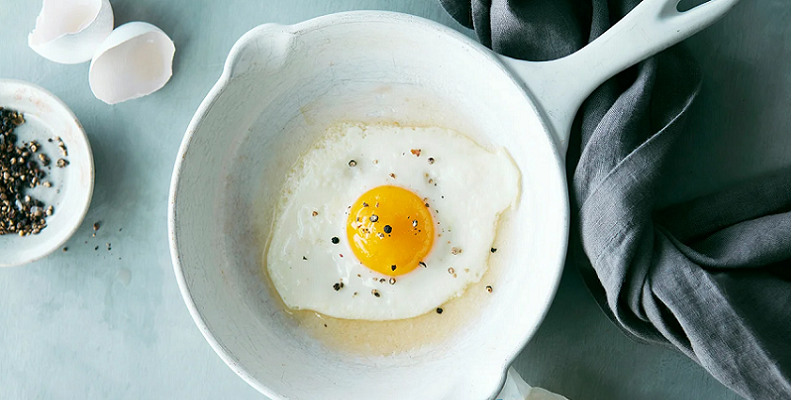
In the quest for optimal health and well-being, the journey often leads us to explore the myriad of nutrients essential for our body’s complex system. Among these, a lesser-known but profoundly impactful vitamin steps into the spotlight — Biotin, also known as Vitamin B7. This vital nutrient, part of the B-complex vitamin family, plays a pivotal role in our health, influencing everything from the vitality of our skin and hair to the efficiency of our metabolic processes. The importance of Biotin extends beyond the superficial, affecting not just how we look but how we feel and function on a daily basis. Its transformative effects on health can be profound, offering benefits that are both visible to the eye and felt within.
Contents
- Understanding Biotin (Vitamin B7)
- Exploring the Multifaceted Health Benefits of Biotin
- Biotin for Radiant Skin: How It Works to Enhance Skin Health
- The Secret to Strong Hair and Nails: Biotin’s Role in Keratin Production
- Biotin as a Metabolic Booster: Its Impact on Energy and Blood Sugar
- Supporting the Nervous System: Biotin’s Potential in Cognitive and Mood Regulation
- The Importance of Biotin During Pregnancy and Lactation
- The Scientific Foundation of Biotin Supplementation
- References
Understanding Biotin (Vitamin B7)
Biotin, commonly referred to as Vitamin B7, is a cog in the complex machinery of the body’s metabolism and health. This water-soluble vitamin is essential for the body, meaning it must be ingested regularly as the body cannot synthesize it in sufficient quantities. Biotin’s role in the human body is multifaceted, supporting various metabolic processes, including the metabolism of fats, carbohydrates, and proteins.
What Is Biotin? Definition and Overview of This Essential B-Complex Vitamin
Biotin is one of the B-complex vitamins that plays a critical role in converting food into energy. It acts as a coenzyme for carboxylase enzymes, involved in the synthesis of fatty acids, amino acids, and the generation of glucose. Beyond its metabolic functions, Biotin also contributes to the maintenance of healthy hair, skin, and nails, showcasing its importance in not just internal health but external appearance as well.
The Discovery and Evolution of Biotin: A Historical Perspective
The journey into the understanding of Biotin began in the early 20th century. Initially, researchers observed that a diet high in raw egg whites led to a condition known as “egg white injury” in rats, characterized by skin inflammation, hair loss, and neuromuscular issues. This condition was later linked to a deficiency in a then-unknown factor, eventually identified as Biotin. This discovery was pivotal, highlighting Biotin’s essential role in animal and human health and paving the way for decades of research into its benefits and functions.
Discovery
In the 1930s, scientists first isolated Biotin from egg yolk, marking a significant milestone in nutritional science. This discovery allowed for further research into the vitamin’s structure and the role it plays in the body, leading to a deeper understanding of its critical functions in metabolism and health.
Evolution of Understanding
Over the years, research has expanded our knowledge of Biotin’s importance in metabolic processes, including its role in the synthesis of fatty acids and the metabolism of glucose and amino acids. Studies have also explored its impact on hair, skin, and nail health, leading to its popularity in supplements and cosmetic products [1].
The Crucial Role of Biotin in the Body: Metabolic and Enzymatic Functions
Biotin’s importance extends to its involvement in several key metabolic pathways. Its role as a coenzyme allows it to assist in various chemical reactions, facilitating the body’s use of fats, carbohydrates, and proteins. This process is vital for energy production, demonstrating Biotin’s central role in maintaining metabolic health.
Metabolic Processes
Biotin is indispensable in metabolizing the three major macronutrients: carbohydrates, fats, and proteins. Through its action as a coenzyme, it supports the body’s ability to convert these nutrients into glucose, fatty acids, and amino acids, respectively, which are essential for energy, cell growth, and repair.
Enzymatic Functions
The enzymatic activities supported by Biotin are crucial for the synthesis of certain amino acids and the production of glucose from non-carbohydrate sources. These processes are not only fundamental for energy production but also for maintaining steady blood sugar levels and supporting the body’s overall metabolic health.

Exploring the Multifaceted Health Benefits of Biotin
From the visible — like skin, hair, and nails — to the invisible yet crucial — such as metabolic and nervous system functions — Biotin’s influence is vast and varied.
Biotin for Radiant Skin: How It Works to Enhance Skin Health
Biotin’s role in fostering healthy skin is backed by scientific inquiry, pointing to its involvement in fat metabolism as a key factor. This process is crucial for maintaining the skin’s moisture and protecting against dryness, rashes, and other dermatological issues [2].
Enhancing Skin Hydration and Texture
By supporting fat metabolism, Biotin helps in the maintenance of the skin’s oil barrier, leading to improved hydration and a smoother skin texture. This not only prevents dryness but also gives the skin a radiant, healthy glow.
Combatting Rashes and Dermatitis
Studies have shown that Biotin deficiency can lead to various skin problems, including rashes and eczema-like symptoms. Supplementation, therefore, can be a vital strategy in preventing and managing such conditions, promoting overall skin health.
The Secret to Strong Hair and Nails: Biotin’s Role in Keratin Production
One of the most celebrated benefits of Biotin relates to its positive impact on hair and nails, largely attributed to its role in keratin production. Keratin, a protein found in hair and nails, is essential for their strength and health.
Promoting Hair Growth and Strength
Biotin supplementation has been linked to improved hair health, including increased growth rates and hair thickness. This is particularly beneficial for individuals experiencing hair thinning or loss.
Improving Nail Health and Resilience
Similarly, Biotin contributes to stronger, more resilient nails. Research indicates that Biotin can help reduce nail splitting and increase nail thickness, making it a go-to nutrient for those seeking healthier nails.
Biotin as a Metabolic Booster: Its Impact on Energy and Blood Sugar
Beyond its external benefits, Biotin plays a critical role in the body’s internal functioning, particularly in metabolism. Its contribution to metabolic processes ensures that the body efficiently converts food into usable energy.
Facilitating Fat and Carbohydrate Metabolism
By aiding in the metabolism of fats and carbohydrates, Biotin supports energy production and contributes to a balanced metabolism, which is essential for maintaining healthy body weight and energy levels.
Balancing Blood Sugar Levels
Biotin is also seen as a supporter of healthy blood sugar levels. It works by facilitating the activity of enzymes involved in glucose production, helping to stabilize blood sugar and prevent spikes [3].
Supporting the Nervous System: Biotin’s Potential in Cognitive and Mood Regulation
The benefits of Biotin extend into the domain of neurological health, where it is believed to play a role in supporting the nervous system and cognitive functions.
Enhancing Cognitive Functions
Biotin’s impact on the nervous system may contribute to improved cognitive functions, including memory and learning capacities, although further research is needed to fully understand this relationship.
Mood Regulation and Neurological Health
There’s also emerging evidence suggesting Biotin’s potential in mood regulation, pointing to its role in synthesizing hormones that influence mood and well-being, highlighting its importance in mental health.
The Importance of Biotin During Pregnancy and Lactation
For pregnant and lactating women, Biotin carries added significance due to its essential role in fetal development and the increased nutritional demands during these stages.
Meeting the Increased Nutritional Needs
Pregnancy and lactation increase the body’s demand for Biotin. Adequate intake supports the health of the mother and plays a crucial role in the development of the fetus and newborn.
Supporting Fetal Development and Health
Biotin is vital for embryonic growth, making it an essential nutrient during pregnancy. Ensuring sufficient Biotin intake can help support a healthy pregnancy and the development of the fetus.

The Scientific Foundation of Biotin Supplementation
The intrigue surrounding Biotin, often heralded for its myriad health benefits, is not merely anecdotal. The scientific scrutiny it has undergone provides a solid foundation for understanding how and why this B-complex vitamin plays such a pivotal role in our health. From clinical studies to molecular mechanisms, the evidence supporting Biotin supplementation paints a comprehensive picture of its potential impacts.
Insights from Clinical Studies: Evaluating the Efficacy of Biotin Supplements
Clinical studies serve as the backbone of our understanding of Biotin’s effects, offering quantifiable evidence of its benefits. These studies not only confirm the vital role of Biotin in health but also help delineate the specific conditions under which Biotin supplementation can be most beneficial.
Key Findings from Recent Research
Numerous studies have highlighted the positive impact of Biotin supplementation on hair and nail health, showing significant improvements in hair growth, strength, and overall quality, as well as increased nail thickness and durability. Research into Biotin’s role in managing blood sugar levels and its potential benefits for neurological health has opened new avenues for its therapeutic use [4].
Analyzing the Effectiveness of Supplementation
The effectiveness of Biotin supplementation varies depending on the individual’s health status, dietary intake, and specific needs. For individuals with Biotin deficiency, supplementation has been shown to quickly restore optimal levels, alleviating associated symptoms. Even in the absence of a diagnosed deficiency, supplementation may offer benefits for hair, skin, and metabolic health, suggesting a broader application for maintaining and enhancing well-being.
How Biotin Works: Unraveling the Mechanisms of Action at the Molecular Level
To fully appreciate the benefits of Biotin, it’s crucial to understand its mechanisms of action within the body. This insight not only underscores the importance of Biotin in our diet but also informs how supplementation can be used to support health.
Biotin’s Role in Cell Growth and Metabolism
At the cellular level, Biotin acts as a coenzyme for several carboxylases, enzymes critical for synthesizing fatty acids, amino acids, and glucose. This process is essential for cell growth, repair, and the maintenance of metabolic health. By facilitating these enzymatic reactions, Biotin supports the body’s energy production and the synthesis of vital components necessary for healthy hair, skin, and nails.
System-wide Effects and Benefits
The systemic effects of Biotin stem from its metabolic functions, which have far-reaching implications for overall health. By enhancing metabolic pathways, Biotin contributes to energy production, nutrient utilization, and the maintenance of stable blood sugar levels. These actions collectively support various bodily systems, from the nervous system to the integumentary system, underscoring Biotin’s integral role in maintaining and enhancing health.
References
[1] Biotin – Vitamin B7
[2] Biotin (Vitamin B7) Sources, Health Benefits and Dosage
[3] Biotin Fact Sheet for Health Professionals
[4] Health Benefits of Biotin
